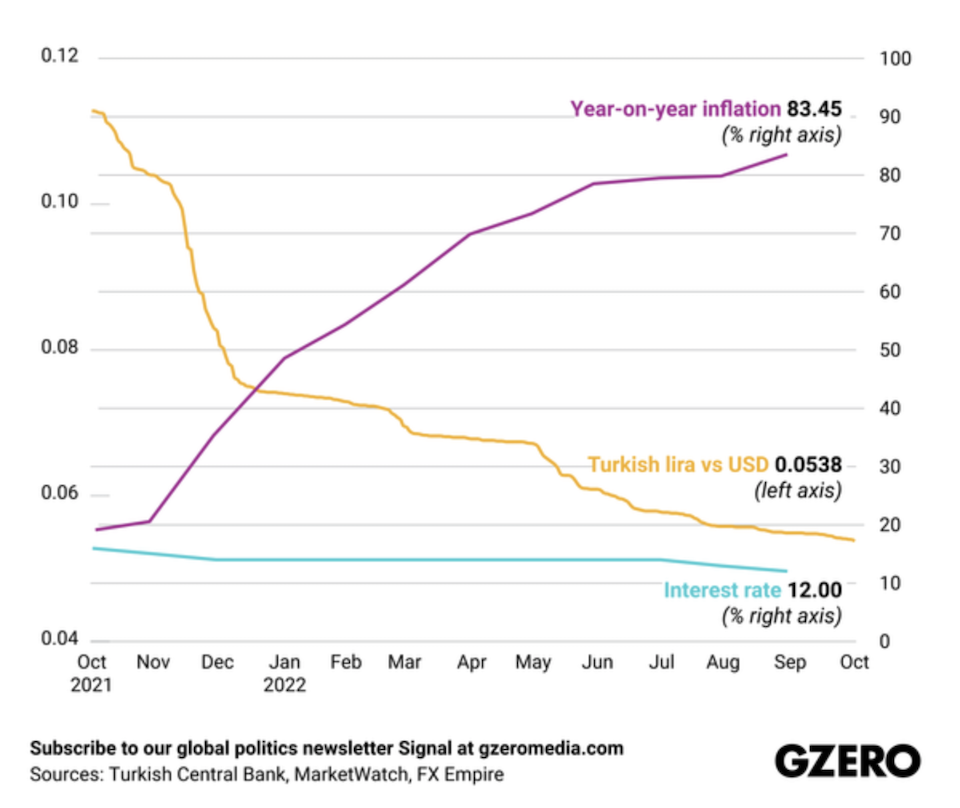
The events, taken together, are like a recipe for economic disaster or the perfect economic storm.
OUR inflation she does not stop galloping, moving up. Pound does not stop puffing, moving down. As well as Erdogan he never ceases to defend low interest rates against the current of so-called economic orthodoxy.
This week, annual inflation in Turkey formed at the level of 84.45%, reaching a 24-year high. And this is according to official data. Because according to unofficial estimates (estimated by independent analysts), real inflation is close to 186%. What does this mean in practice? That prices in Turkey have recently increased many times over.
However, President Recep Tayyip Erdogan appears to be unfazed by high inflation and continues to challenge economic orthodoxy by keeping interest rates low (now at a low 12%), the Gzero website notes in its analysis.
“Right now, interest rates are at 12%, but if inflation is taken into account, the real rate is -68%, which means that cash is burning a hole in the wallets of Turkish banks,” Gzero continues in his analysis, according to which what Erdogan does, puts the goal of growth above stability.

If Turkey makes it easier to borrow money for investment, business and job creation, then GDP will grow at a faster rate than the rate of price growth. The Turkish economy is indeed growing at a rate of 7.6% in the second quarter of 2022 year on year. However, it is underdeveloped if all other (negative) elements are taken into account.
The Turkish lira has collapsed against the dollar and its exchange rate is hovering around 18.5 lira per dollar. However, while the lira is falling, Turkish exports are not growing, or rather, they are growing, but at the same time, Turkish imports are growing.
As a result, the country’s trade deficit does not decrease, but increases.
However, Turkey also has a $182 billion debt that needs to be repaid by April 2023 (“External debt maturing within 12 months until the end of April 2023 is $182 billion,” Fitch notes).
And all this without taking into account all the other consequences of the war in Ukraine.
However, Erdogan insists on ergonomics as elections are approaching in Turkey (parliamentary and presidential until the summer of 2023).
The Turkish president hopes that if the economy continues to grow and inflation falls slightly, his re-election will be secured. However, as Gzero points out, there is a big “if” in this assessment and at the same time a big bet on the Turkish leader.
According to Gzero, Bloomberg
Source: Kathimerini
Anna White is a journalist at 247 News Reel, where she writes on world news and current events. She is known for her insightful analysis and compelling storytelling. Anna’s articles have been widely read and shared, earning her a reputation as a talented and respected journalist. She delivers in-depth and accurate understanding of the world’s most pressing issues.